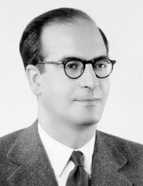

His involvement in the press and other social media was ever increasing, whether in the form of statements and commentaries on cultural and topical questions, or in interviews, programmes and series. By the 1970s he was contributing to the Diário de Notícias, and other papers such as O Tempo, A Tarde and O Semanário, and by the end of the decade was appearing more frequently on radio and television. From early on he also contributed to collective works. With Joel Serrão he prepared a first collection of texts for teaching philosophy, the Breve Antologia Filosófica (1947) and he contributed the article “As Condições Sociais da Cultura (Séc. XV)” for the História da Cultura em Portugal, by António José Saraiva (1950). Also noteworthy are his twenty-five entries for the Dicionário de História de Portugal, organized by Joel Serrão (1963-68) and the eighty-nine entries for the Verbo Enciclopédia Luso-Brasileira de Cultura (1963-86), and his work with Focus, Enciclopédia Internacional, in the Dicionário Político do Ocidente, and in Polis. Another aspect of his public cultural intervention was the advice he gave on organizing various kinds of exposition; we may note here his work on O Triunfo do Barroco, as well as Europália (1991).
Regarding research, his first significant piece of historical study was his bachelor’s thesis of 1944 (mentioned above). However, JBM had started to publish texts on culture and history in 1940, already outlining in them the principles and outlook that would guide his production, such as calling attention to the cultural and social responsibilities of intellectuals and the importance of education; the value of models of classical culture; an interest in understanding the culture and religion of other cultures; and the danger of interpretation and anachronism. He dealt with the great themes of Portuguese history and its relationship with world history, especially with regard to the international situation, the revolution of 1383/85, the historiographical revision of the Marquis of Pombal and his time, the political theory of the exponents of Liberalism, such as Garrett, and the significance of the revolutions of the nineteenth century for the development of Europe in the contemporary world. From early on he discussed the consequences of industrialization in European and world economic life and examined the consequences of the industrial revolution in England, laying out a perspective for a comparative economic history that integrated the specific data from national histories on the nineteenth and twentieth centuries. Later he would develop this in his teaching, highlighting the differences between the process in England, which W. W. Rostow would describe by the term “take off”, and that in France, which Paul Mantoux described as “industrialization”.
